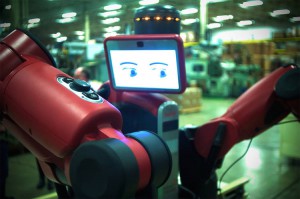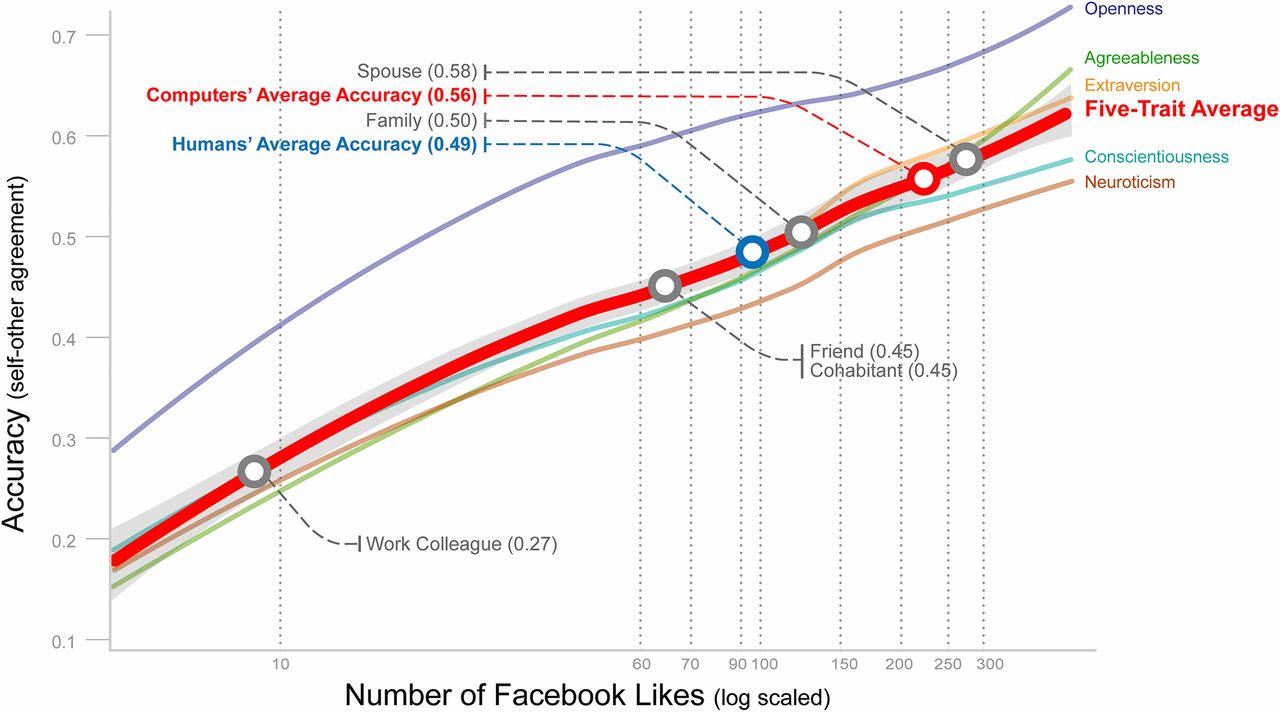BUILDING COMPUTERS WITH SOCIAL SKILLS USING FACEBOOK U0026QUOT;LIKESU0026QUOT;
Apr 21, 2015
 Who’s a better judge of character: a human or a computer? Turns out, it’s the computer. Stanford researchers have found that computers can judge personality traits more accurately than one’s friends and colleagues. In fact, artificial intelligence can draw inferences about a person as accurately as a spouse.
Who’s a better judge of character: a human or a computer? Turns out, it’s the computer. Stanford researchers have found that computers can judge personality traits more accurately than one’s friends and colleagues. In fact, artificial intelligence can draw inferences about a person as accurately as a spouse.
The study (conducted jointly by researchers at Stanford University and the University of Cambridge) compares the accuracy of human and computer-based personality judgments, using a sample of 86,220 volunteers who completed a 100-item personality questionnaire. People’s judgments were based on their familiarity with the judged individual, while the computer used digital signals – Facebook “likes.”more–>
100 likes beat human judgement
The idea was to see how closely a computer prediction could match the subject’s own scores on the five most basic personality dimensions: openness, conscientiousness, extraversion, agreeableness and neuroticism. The results reveal that by mining a person’s Facebook “likes,” a computer was able to predict a person’s personality more accurately than most of their friends and family. Only a person’s spouse came close to matching the computer’s results.
Computers’ average accuracy across the Big Five traits (red line) steadily grows with the number of Likes available on the participant’s profile (x axis). Computer models need only 100 Likes to outperform an average human judge in the present sample and a computer could more accurately predict the subject’s personality than a work colleague by analyzing just 10 likes; more than a friend or a roommate with 70; a family member with 150; and a spouse with 300 likes.
A machine with social skills
So how does a machine out performs us in such a human skill? The main reason of course is their ability to retain and access large quantities of information, and analyze all this data through algorithms. That means that artificial intelligence has a potential to know us better than our closest companions do. Eventually we could (and probably will) end up with machines that are emotionally intelligent and socially skilled. Much like the movie Her.
It reminds me of experiment done by Researchers at the University of Manitoba. They designed an experiment to see how far people would go in obeying the commands of a robot. The test borrows from Stanley Milgram’s infamous obedience studies, in which many participants obeyed an authority figure who told them to administer painful electrical shocks to strangers.
About half of the people sort of do what the robot says. I wonder how the increase in social skills will influence our perception of robotic identities and our ability to accept being bossed around by a robot/algorithm.

 English | EN
English | EN 

